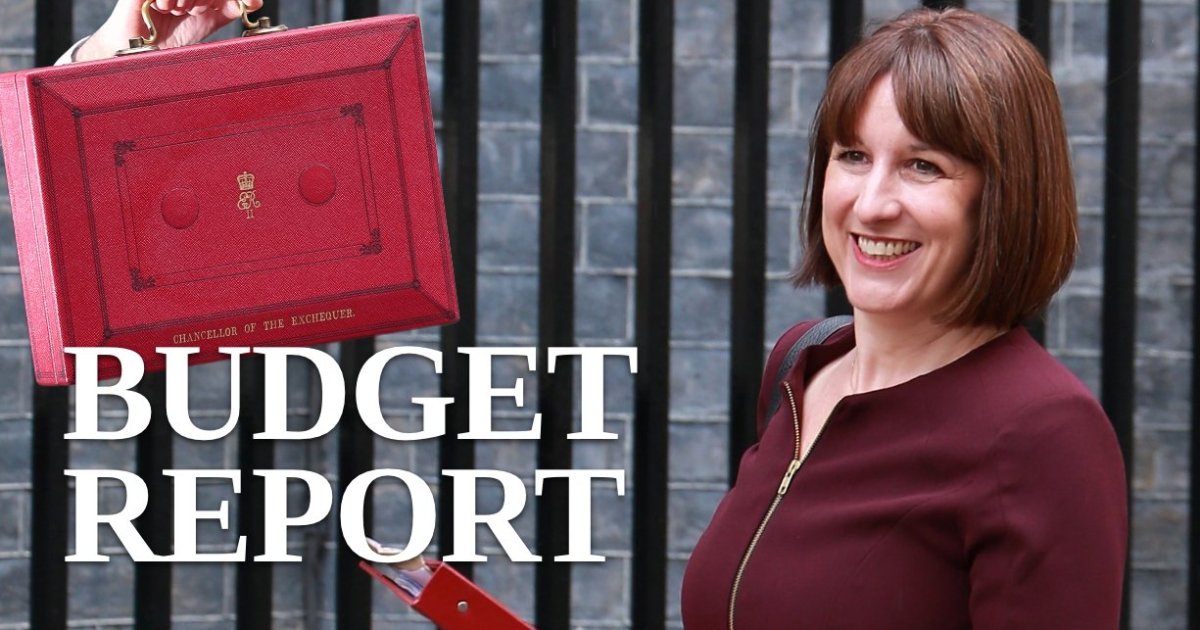Budget Summary – Rachel Reeves Delivers Labour Budget
Wednesday 30 October, 2024
The Labour government has introduced its first Budget in 14 years, marking a pivotal moment under the leadership of Chancellor Rachel Reeves as the party sets out its economic strategy.
In her address, Reeves highlighted the need to confront a projected £22 billion financial shortfall, which she linked to prior government policies. She affirmed Labour’s commitment to restoring financial stability alongside targeted investments in key national sectors.
This Budget seeks to strike a balance between fiscal prudence and substantial investment in priority areas, including infrastructure, healthcare, and education. It signals Labour's approach to renewed public spending with a view toward sustainable, long-term growth.
The headline elements of the Budget include:
Personal Taxes
- The freeze on income tax and National Insurance thresholds will come to an end in 2028, helping prevent individuals from moving into higher tax bands as wages increase.
- Capital gains tax on profits from selling shares will rise, with rates increasing from a maximum of 20% to up to 24%, while the rates for selling additional properties will remain unchanged.
- The freeze on inheritance tax thresholds will be extended further, now lasting until 2030.
Business Taxes
- Starting in April, businesses will be required to pay National Insurance on employee earnings above £5,000, down from the current threshold of £9,100, with the rate increasing from 13.8% to 15%.
- The Employment Allowance, which enables businesses to reduce their National Insurance liabilities, will increase from £5,000 to £10,500.
- Taxes on private equity managers’ share of profits from successful deals will rise from a maximum rate of 28% to a maximum of 32% in April.
- The main rate of corporation tax, which applies to business profits over £250,000, will remain at 25% until the next election.
Transport, Alcohol & Tobacco
- The £2 cap on single bus fares in England will increase to £3 starting in January.
- The 5p reduction in fuel duty on petrol and diesel, originally set to expire in April 2025, will be extended by another year.
- Funding is confirmed for the tunnelling work needed to bring the HS2 high-speed rail line to Euston station in central London.
- Air Passenger Duty on private jet flights will increase by 50%.
- Tax on tobacco will increase by 2% above inflation, and by 10% above inflation for hand-rolling tobacco.
- Tax on non-draught alcoholic beverages will rise in line with the higher RPI inflation measure, while tax on draught drinks will be reduced by 1.7%.
Housing
- The budget for affordable homes, which runs until 2026, will receive an additional £500 million boost.
- Social housing providers will be permitted to increase rents above inflation under a new multi-year agreement.
- The stamp duty surcharge on second homes in England and Northern Ireland will increase from 3% to 5%.
Wages, Benefits & Pensions
- The minimum wage for workers over 21 will rise from £11.44 to £12.21 per hour from April.
- For 18 to 20-year-olds, the minimum wage will increase from £8.60 to £10, as part of a phased approach towards a “single adult rate.”
- Eligibility for the carer’s allowance will be expanded by increasing the weekly maximum earnings threshold from £151 to £195.
UK Debt, Inflation & Economic Growth
- The Office for Budget Responsibility predicts that the UK economy will grow by 1.1% this year, 2% in the following year, and 1.8% in 2026.
- Inflation is forecast to average 2.5% this year, rise to 2.6% next year, and then decrease to 2.3% in 2026.
- The official definition of UK government debt has been broadened to include a wider range of financial assets, such as projected student loan repayments.
Government Spending & Public Services
- The NHS in England will receive an additional £1.57 billion next year, allocated towards surgical hubs, new scanners, and radiotherapy equipment.
Other Measures
- A total of £11.8 billion has been allocated to support victims of the infected blood scandal, with an additional £1.8 billion designated for compensation to former Post Office sub-postmasters wrongfully prosecuted.



